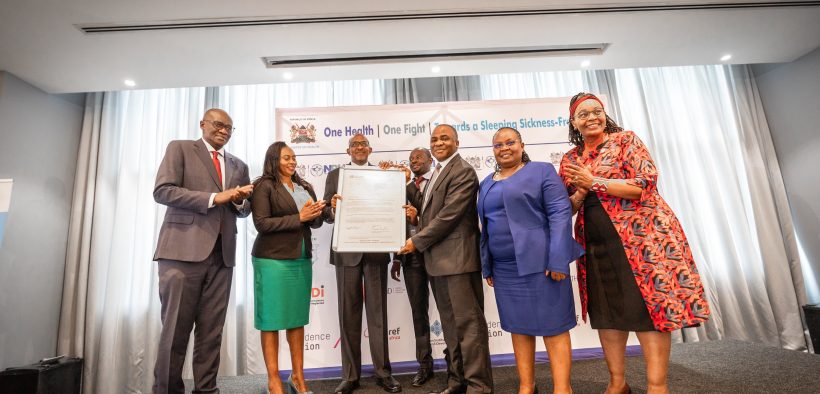On 8 August 2025, the World Health Organization (WHO) officially declared that Kenya has eliminated human African trypanosomiasis (HAT)—commonly known as sleeping sickness—as a public health problem. This recognition makes Kenya the tenth African country to reach this important milestone.
Advertisements

Sleeping sickness is a vector-borne disease caused by the Trypanosoma brucei parasite and transmitted via tsetse fly bites—primarily affecting rural communities involved in agriculture, fishing, animal husbandry, or hunting. In Kenya, only the rhodesiense form (r-HAT), a rapidly progressing variant, has been present, and it can be fatal within weeks if untreated.
Kenya’s journey toward elimination has been methodical and sustained. The last indigenous case was reported in 2009, while the last two exported cases—linked to Masai Mara National Reserve—occurred in 2012. In recent years, the country ramped up efforts by equipping 12 sentinel health facilities across six historically affected counties with advanced diagnostic tools, training healthcare personnel in sensitive detection techniques, and bolstering surveillance for both human and animal trypanosomiasis. These efforts were supported by the Kenya Tsetse and Trypanosomiasis Eradication Council (KENTTEC) and national veterinary authorities.
Leaders acknowledged the significance of this success. Kenya’s Cabinet Secretary for Health, Dr. Aden Duale, called it a “major public health milestone” that promises to protect citizens and stimulate economic growth. WHO Director-General Dr. Tedros Adhanom Ghebreyesus extended his congratulations, framing it as an essential stride toward a continent free of neglected tropical diseases.
Key partners played crucial roles. The global health organization FIND (Foundation for Innovative New Diagnostics) lauded Kenya’s achievement and highlighted its contributions since 2020—including training, infrastructure upgrades, mapping, community awareness, and surveillance strengthening.
Looking forward, Kenya will implement a post-validation surveillance plan to guard against potential disease resurgence or reintroduction. WHO will continue its support by maintaining medical stocks—donated by Bayer AG and Sanofi—and monitoring previously affected areas to ensure rapid treatment capabilities remain in place.
Kenya now joins other African nations—including Benin, Chad, Côte d’Ivoire, Equatorial Guinea, Ghana, Guinea, Rwanda, Togo, and Uganda—that have also eliminated HAT as a public health problem.
